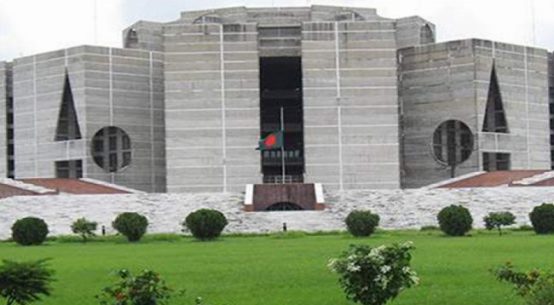
Some 4,657 people, mostly politicians and journalists, have been sued under the Information and Communication (ICT) Act and Digital Security Act (DSA) since 2013, said a report of the Centre for Governance Studies (CGS) on Thursday.
In the report titled “Three Years of Digital Security Act 2018 (DSA): Observations and Summary Findings”, CGS said they have tracked and documented cases filed under the DSA 2018 since 1 January, 2020.
Professor Ali Riaz, professor of political science at Illinois State University, described the trend as highly disturbing and immensely disconcerting.
“The wanton use of the law has created a culture of fear in Bangladesh. Repealing the law has become necessary,” he said.
Of 4,657 cases filed under the DSA, 925 cases were filed in 2018; 1,189 cases in 2019 and 1,128 cases in 2020. The report also added that more than 1,500 cases have been filed under the DSA between 1 January, 2020 and 15 September, 2021.
The CGS report had been able to track details of 668 cases. The total number of accused persons in those cases is 1,516; among them 194 are politicians, 142 are journalists, 67 are students, and 35 teachers. Among those who have been arrested, 42 are journalists, 55 politicians, and 32 students.
The report found that the majority of these cases are not filed by aggrieved individuals but by others – often by ruling party activists for their leaders. Law enforcement agencies have filed 76 cases, the press release added.
The judicial process is extremely slow in trying these cases with only two cases being settled so far, according to the CGS report.
The CGS further said there have been cases where the accused was effectively being punished before the trial and submission of a probe report.
The data for the study was gathered from government-approved print and electronic media; the accused or their family and friends; the lawyers of the accused; and police stations and other concerned departments.
The data ais presented and regularly updated at the website: https://freedominfo.net, said a press release of CGS.
The DSA was passed by the Bangladesh Parliament after 5 sections of the ICT Act. The law came into force on 1 October, 2018.
Out of the 20 provisions of the law that deal with offences and punishments, 14 are non-bailable. Five are bail-able and one can be negotiated. The lowest punishment is one year in prison and the highest being life-term. The non-bailable provisions of the law practically allows the accused to be detained for an indefinite period.


